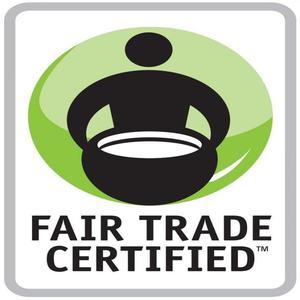

Fair Trade

Purpose
Fair Trade USA enables sustainable development and community empowerment by cultivating a more equitable global trade model that benefits farmers, workers, fishermen, consumers, industry, and the earth. We achieve our mission by certifying and promoting Fair Trade products.
Applied Standards
Fair Trade has six modules of standards that address the rights adn dignity of workers, wages and working conditions, biodiversity, ecosystem function, and sustainable production, transparency, and management. Standards that directly effect the quality of food produced are as follows: "Only clean water is used in irrigation.The source of water is known and the distribution system is maintained. Water extracted from ground and surface sources are recorded and used sustainably. Farmers comply with national legislation on agricultural land use.There is no deforestation or degradation of natural forest. Farmers do not use genetically modified seed or planting materials. Buffer zones around protected areas, water bodies, and drinking water sources are maintained. Farmers protect and enhance on-farm biodiversity and endangered species. Farmers use Integrated Pest Management techniques and minimize pesticide use. Farmers keep records of annual quantities of pesticides applied. Farmers take measures to prevent soil erosion, improve soil fertility and use fertilizers efficiently. Farmers do not use illegal pesticides. Farmers do not use pesticides on Fair Trade USA’s Red List of Prohibited Pesticides. Farmers only use pesticides on Fair Trade USA’s Yellow List of Restricted Pesticides under specific conditions. The Certificate Holder maintains a list of all pesticides used. Pesticides and hazardous materials are stored and transported in a safe manner. Pesticides are applied in a way that minimizes risk of drift and human exposure. Wastewater is treated before being discharged. Discharged wastewater does not pollute drinking water sources.* Wastewater quality is monitored to ensure it meets safe water quality parameters. Farmers and workers are trained in handling organic and hazardous waste.There is a waste management plan to minimize pollution and health risks. ".
Other notes
Use of protective clothing, proper handling of hazardous materials and building safety. Workers must "“have access to appropriate secondary healthcare". Requirements regarding access to safe drinking water.
